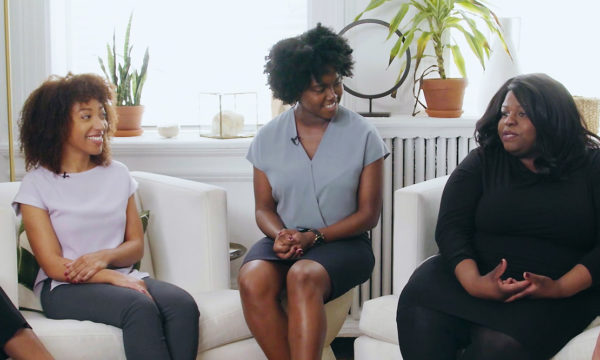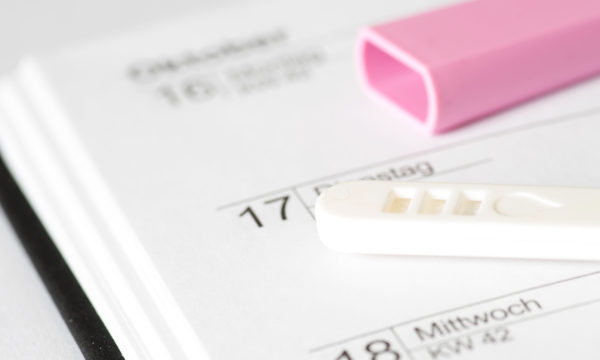
The Fertility Factor: A Conversation With Dr. Janet Choi
In honor of National Infertility Awareness Week (April 19-25), our CEO Sarah LaFleur sat down with Dr. Janet Choi, an NYC-based reproductive endocrinologist.
When it comes to preserving and optimizing fertility, women today have more options than ever before. And yet, there are still so many misconceptions about how (and when) to take action on this front. Our colleague, Rachel Flynn, bravely spoke about her struggle with infertility in a previous M Dash post, and I’ve also had my share of challenges, which I spoke about in a podcast for the Wall Street Journal. Over the past two-and-a-half years, I’ve been through three rounds of IVF and a host of treatments, including induced menopause. There’s an ending to this (which I’ll share in a future post), but the doctor who was there for me through thick and thin was Dr. Janet Choi at CCRM. She is a rare combination of warm and caring, but also direct and fact-based.
Want more M Dash?
Sign up for our weekly newsletter.
Thank you!
I try to be very measured in how I counsel people. I don’t want women to feel overly nervous, but I also don’t want them to be misled. The truth of the matter is: age impacts female fertility. But that doesn’t mean that every woman over 35 is doomed to infertility—that’s absolutely not the case. Women who want to have children have many options, whether they’re in their twenties, thirties, or forties. But because of normal biologic factors that happen as we age, there’s a striking increase in the rate of infertility problems and miscarriage as we get older. So I would counsel women to absorb that truth so they can make educated decisions about how and when they might want to have children—and how that may factor into their career plans.
It’s not like your ovaries automatically drop off a cliff when you turn 35. But when you look at trends as women go from 30 to 35 to 40, you do see a decrease in normal monthly pregnancy rates—or what doctors call “fecundity.” So for a typical woman at age 30, I’d say there’s a 15-20% chance of getting pregnant each month. At 35, it’s more like 14-15% per month. At 40, it might be 8-10% per month. So 35 is just a reference point for when your fecundity may begin to decrease more rapidly. And that’s because your egg quality and supply decreases as you age. Throughout your twenties, thirties, and forties, you constantly slough off eggs, just as you slough off skin and hair cells. Sometimes patients ask me, “How can I grow my eggs back?” The short answer is: you can’t. Once they’re gone, they’re gone.
The truth of the matter is: age impacts female fertility. But that doesn’t mean that every woman over 35 is doomed to infertility—that’s absolutely not the case.
That’s a classic example of someone I see in my office—a single professional woman who is trying to get her career ramped up before she has kids. Let’s say a woman is 32 and says, “I’m on track to make partner. I don’t want to think about having a kid until I’m 37.” In that case, I’d say, “If you have the means, you may want to think about banking eggs or embryos now, while your eggs are younger and healthier.” Nothing is a sure bet, but younger-aged eggs seem to perform a lot better than eggs that are harvested at age 39, 40, 41. However, it’s also true that many women who freeze eggs or embryos happily call me up three or four years later and say, “I don’t need to use them, because I got pregnant naturally. Maybe I’ll hold onto them for Baby #2 when I’m closer to 40.” So for some women, age doesn’t cause fertility issues.
I’m very cagey about how I answer this question, which I get asked every single time I counsel someone about egg freezing. You can wake up from your procedure and hear, “We harvested 15 eggs and 12 were mature, so you have 12 eggs in the freezer!” But we really don’t know how well those eggs will perform until we eventually pull them out of the freezer, see which ones survive the thaw, and then see which ones turn into embryos, which then undergo genetic testing to see if they’re viable. It’s highly variable. I always say, “Don’t hold me to these numbers,” but if you have six or seven healthy mature eggs from a twenty-something, we’re typically looking at a baby rate of 50%. For someone who is 30-34, I’d suggest banking 10-12 eggs to have a solid 50% chance at a baby in the future. If you’re 40, it would be great to bank 20-25 eggs for a 50% shot at a pregnancy. But it’s so hard to predict. I’ve seen women in their late 30s who only freeze a small number of eggs, but the eggs perform well and they have a baby. It comes down to egg quality—not just quantity.
There’s nothing we can do to fend off the natural aging process, so in your twenties, it’s really about maintaining overall health. I tell women to maintain a healthy body mass index (BMI), stay up to date on their vaccines, and if they’re sexually active, use condoms to protect themselves against sexually transmitted infections, which can adversely affect their natural fertility down the road. And definitely avoid smoking, or if you currently smoke, try to stop as soon as possible. There is data that suggests smoking may cause you to lose eggs at a faster rate, and smokers may hit menopause at a younger age than women who don’t smoke.
I hear the same refrain a lot: “My boyfriend doesn’t understand why I’m so stressed and why I’m in tears every month I get a period. He thinks I just need to relax.”
I hear the same refrain a lot: “My boyfriend doesn’t understand why I’m so stressed and why I’m in tears every month I get a period. He thinks I just need to relax.” And I tell these patients, “Just bring your partner in, and I’ll smack him around for you—figuratively, of course.” I try to speak to men in a very measured way, so they understand that just because some men become fathers into their fifties, sixties, and seventies doesn’t mean women have that flexibility. There are also lots of studies showing that as guys get older, their sperm is not as robust. So it might behoove men to start thinking about having families sooner—not just because of their female partners’ fertility timeline, but because of their own biologic factors. The American Society for Reproductive Medicine has some good resources that can help couples facilitate this conversation and get the ball rolling.
There’s no one “normal” anymore in terms of what’s considered a family unit. As long as the intentions are good and the drive is there, there are many ways to go about creating a family.
One of the things that makes me happiest about changes in my field over the past few decades is seeing how many different sorts of family permutations are now considered “normal.” Having a family is no longer just man+woman=marriage=baby. I’m seeing plenty of single women who decide to have children on their own. I also love that we’re taking care of same-sex female couples, same-sex male couples, and transitioning individuals who are trying to preserve their fertility. There’s no one “normal” anymore in terms of what’s considered a family unit. As long as the intentions are good and the drive is there, there are many ways to go about creating a family.
I have a lot of patients who say something like, “I’m 39. I thought I was going to wait to find the right partner, but I don’t want to compromise, and I don’t want to wait anymore. What can I do now?” This is great, because in this scenario, you’re not infertile, you’re just in your late thirties. So I’d say, “Let’s talk about buying sperm from a sperm bank. Maybe we can just do simple insemination in the office, the old-fashioned way.” If that doesn’t work, we can start talking about IVF to help you get pregnant more efficiently.
In those cases, they’re probably using a donor egg. You can buy eggs just as you would buy sperm from a bank. I do wish celebrities were more forthcoming about what tools they use to have a family at different ages, because I think it would be helpful for women to hear. And it would help normalize and destigmatize some of these treatments that are available.
When I counsel women and men, I say, “You may be hooked on an idea that you grew up with about how you’re ‘supposed’ to have a family. But you might want to think about…” Even if I can just insert an idea about different ways to optimize fertility, it can help people realize that there’s no judgment—at least, not in our office. And in the wider community, people are realizing there are lots of ways to have healthy families today.
At this point, we have to take things one day at a time. We have to let go of the reins and our illusion of control. We’ve launched a number of resources on CCRMTV, and I’ve been telling my patients, “If we have to put off your IVF cycle for a month or two, even if you’re 42 or 43, it’s not going to make or break the outcome. Your eggs aren’t going to disappear or change materially in eight weeks, or however long it takes for us to get back to normalcy.” If you’re eager to start or continue fertility treatment once the crisis is over, the best thing you can do right now is to focus on things like healthy eating, maintaining healthy BMI, taking your prenatal vitamins, and not drinking too much wine while you hang out at home. That way, you’ll be geared up when you resume trying to get pregnant.






